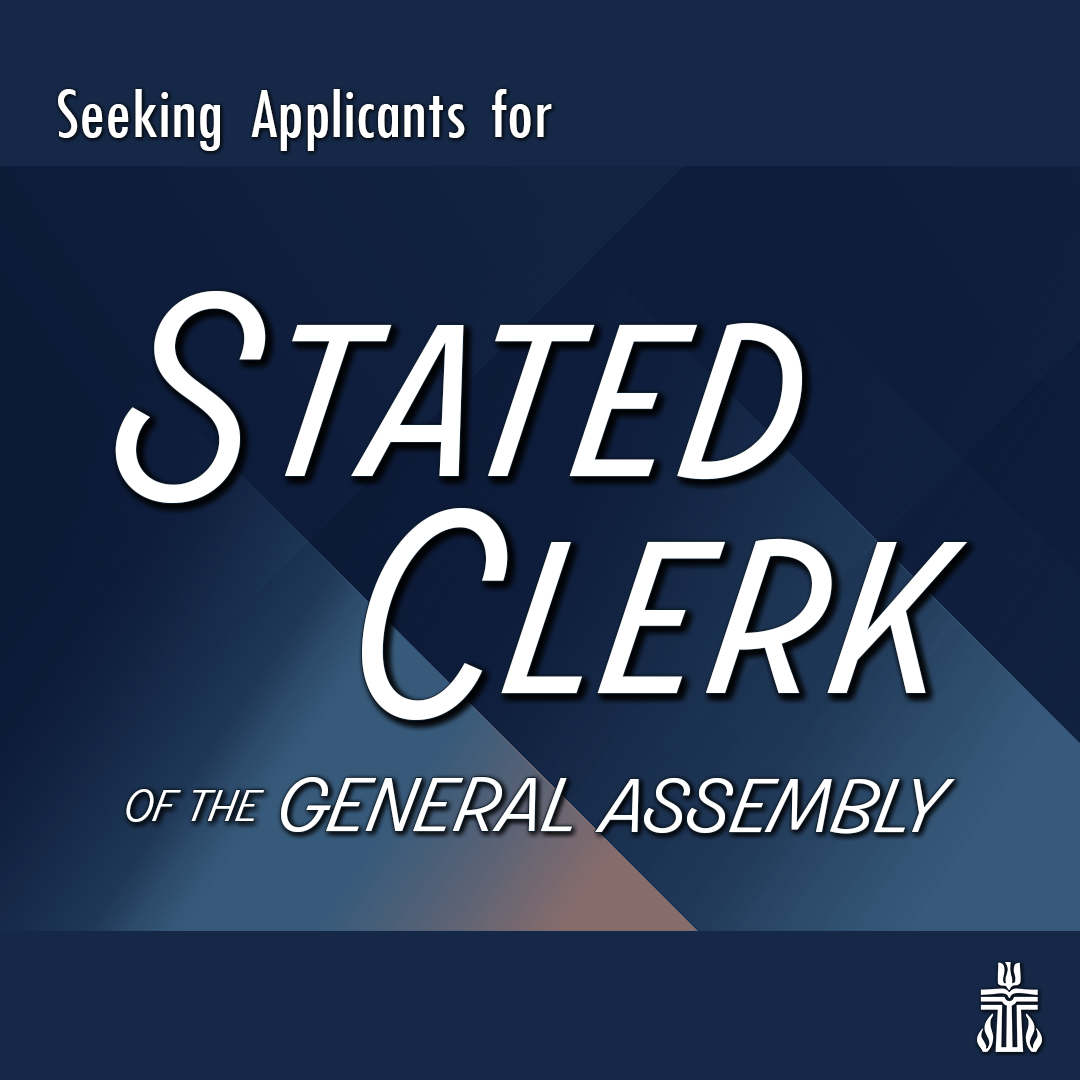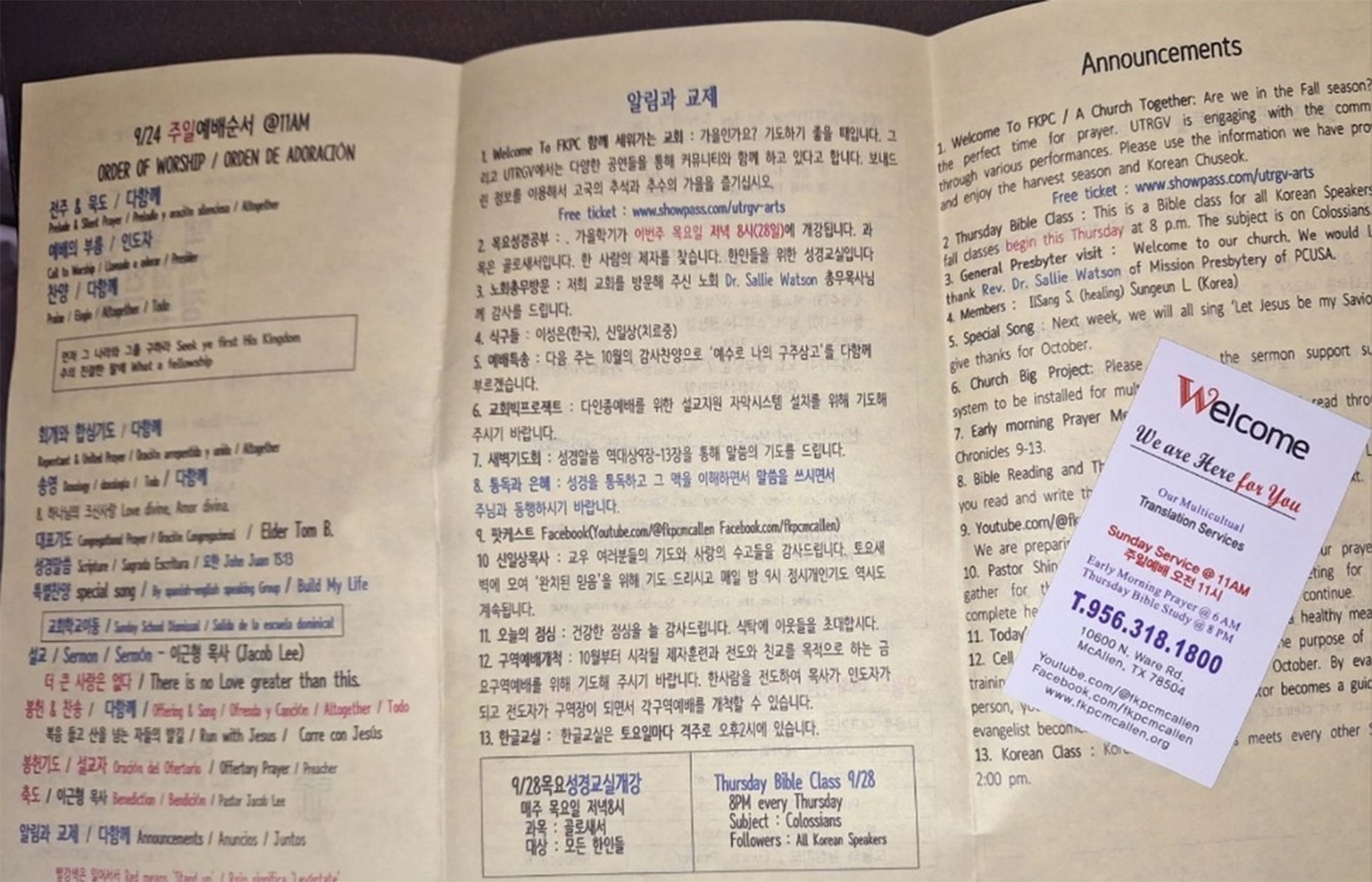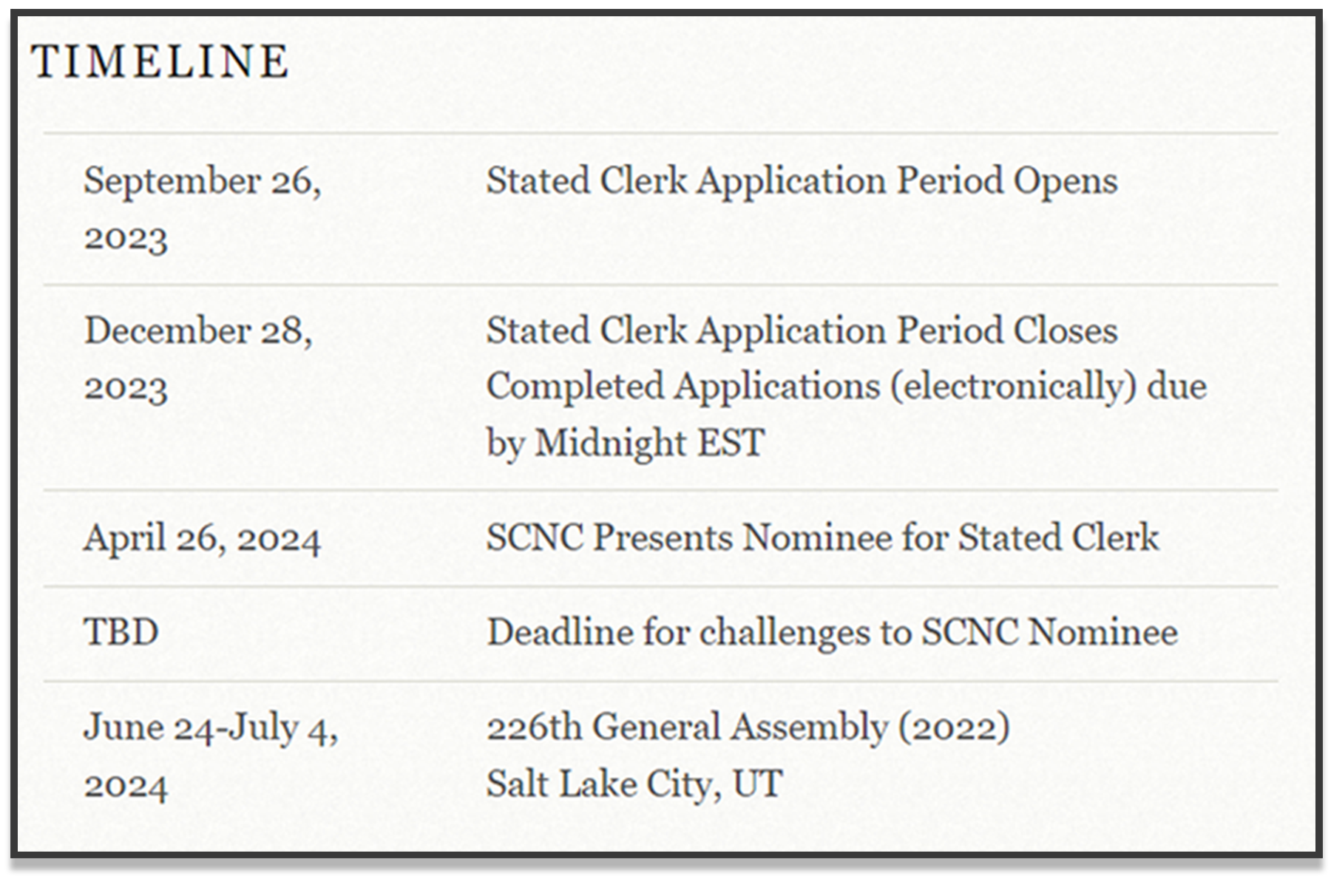Last week, the Stated Clerk Nomination Committee (SCNC) released an updated job description that was last posted in 2015. “POSITION DESCRIPTION: STATED CLERK, GENERAL ASSEMBLY OF THE PRESBYTERIAN CHURCH (U.S.A.).”
“The Stated Clerk will offer constitutional and spiritual leadership for the life and witness of the church and exercise pastoral authority over concerns of the church in times of crisis,” reads the updated description. “The Stated Clerk is the Presbyterian Church (U.S.A.)’s chief ecumenical officer and its primary representative in national and international interchurch and interfaith organizations and speaks to and for the church in matters of faith and practice in accord with the beliefs, policies, and actions of the Presbyterian Church (U.S.A.).”
The Stated Clerk Nomination Committee will select its nominee no later than 60 days before the opening of the 226th General Assembly (2024). The full assembly will then elect the next clerk to a four-year term.


The Rev. Dr. Sallie Watson, SCNC moderator, said, “The task of our committee isn’t that different from the last Stated Clerk Nomination Committee,” which ended with the selection of recently retired stated clerk the Rev. Dr. J. Herbert Nelson, II. “We’re bound by standing rules, which give us deadlines for nominating a candidate. But in other senses it’s not the same at all.”
One big difference this time around is the Unification Commission, which the last General Assembly directed “to oversee and facilitate the unification of the Office of the General Assembly and the Presbyterian Mission Agency into a single agency … and work to align the entities, boards, committees, and constituent bodies of the General Assembly toward long-term faithfulness and financial sustainability of its mission within the Presbyterian Church (U.S.A.).”
Although the commission’s final report isn’t due until the 227th General Assembly in 2026, it has recently been looking at a unification date of July 1, 2025.
“We’re working hand in glove with the commission to be on the same page,” Watson said, mindful that the Unification Commission’s decisions will shape the future clerk’s call. She hoped applicants are keeping themselves up to date on the commission’s work, and ready to speak to the committee about the transformative effort.
With many details about the future of the national church unknown, Watson said flexibility will be an important attribute for any candidate. “They’re going to need to be able to go with the flow.”
Acknowledging that the committee’s other members have their own thoughts on candidates, she said she’ll be looking for ones “who clearly love the church, understand our polity, can communicate well with staff and the denomination and have good relationships ecumenically in the U.S. and around the globe.”
She also is looking for candidates who “have a non-anxious presence, are good at self-differentiation and know their strengths. The church is going to be looking to the next stated clerk for guidance.”
In a nod to the digital demands of being a church leader today, the follow-on questions applicants will complete include one to be answered on video.
“The stated clerk will need to be a good communicator in writing, in-person and on screens,” Watson said. That doesn’t mean they need to be expert in digital media. “On the committee we equalized things so that someone can record their answer on their phone. We aren’t looking for someone to be totally slick. The question is: Can they communicate well without bells and whistles?”
Watson, General Presbyter of Mission Presbytery, recently attended what she called “a career-first” near the US-Mexico border: a trilingual worship service in Korean, Spanish and English at First Korean Presbyterian Church in McAllen, Texas. Such gatherings of Presbyterian communities and cultures are the type the next stated clerk will need to feel comfortable navigating. The updated application emphasizes cross-cultural competencies, stating, “candidates from Presbyterian communities in the global south and other historic Presbyterian communities of color, preferably with theological training and fluency in languages other than English, are encouraged to apply.” With timely assistance from Global Language Resources in the Administrative Services Group, the stated clerk application and job posting is available in English, Spanish and Korean.

Worship bulletin, First Korean Presbyterian Church, McAllen, TX. September 2023. Photo courtesy of Sallie Watson.
Another difference between this and past searches by the Stated Clerk Nomination Committee is having an Acting Stated Clerk in place. Watson said the Rev. Bronwen Boswell has been not only supportive of the committee’s work, but a model for candidates.
“I’ve known Bronwen for 10 years,” Watson said. “She’s been a parliamentarian and knows mid council ministry well, which is a balm for presbyters like myself. And she’s in the dictionary under ‘non-anxious presence.’”
Watson, a member of the Committee on the Office of the General Assembly, said that committee recently held its first meeting with Boswell, and was “very glad to have her with us.” Other COGA members constitute the SCNC, as well as one member of the Presbyterian Mission Agency Board and at-large members nominated by the General Assembly Nominating Committee.
So flexibility, versatility communicating to the entire church, and having a unifying, non-anxious presence — any other attributes Watson is looking for in candidates?
“Being Stated Clerk of the General Assembly is a call, not a hire, like all ministry roles,” she said. “My sense of call is what gets me through on some days. It will be the same for the new stated clerk.
“The scale of the call is the main difference between being stated clerk and a minister called by a pastor nominating committee. A PNC has to think about needs and direction of a congregation. The Stated Clerk Nomination Committee has to keep in mind the needs and direction of an entire denomination.
“We have to find the kind of person who can hold all that in balance.”
December 28 is the last date applications can be submitted.
“Applicants will get the supplemental questions [including the one to be answered on video],” Watson said. “It will be easier for everybody if applicants don’t wait until the last minute of the deadline to apply, although we’re prepared to receive materials into the first week of January.”
Interviews will begin in the new year.
“We’ll do Zoom interviews first with applicants who meet minimum requirements, and then cull the pool to three to five candidates we’re planning to meet in person at Dallas Fort Worth Airport. From there we’ll select one to three finalists who we’ll meet with again in person. Then, per the standing rules, we’ll announce our final selection for nominee in late April.”

Stated Clerk Nominating Committee timeline, per SCNC web page.
Learn more about the position of stated clerk and the work of the Stated Clerk Nomination Committee: https://oga.pcusa.org/section/committees/stated-clerk-nominating-committee/
